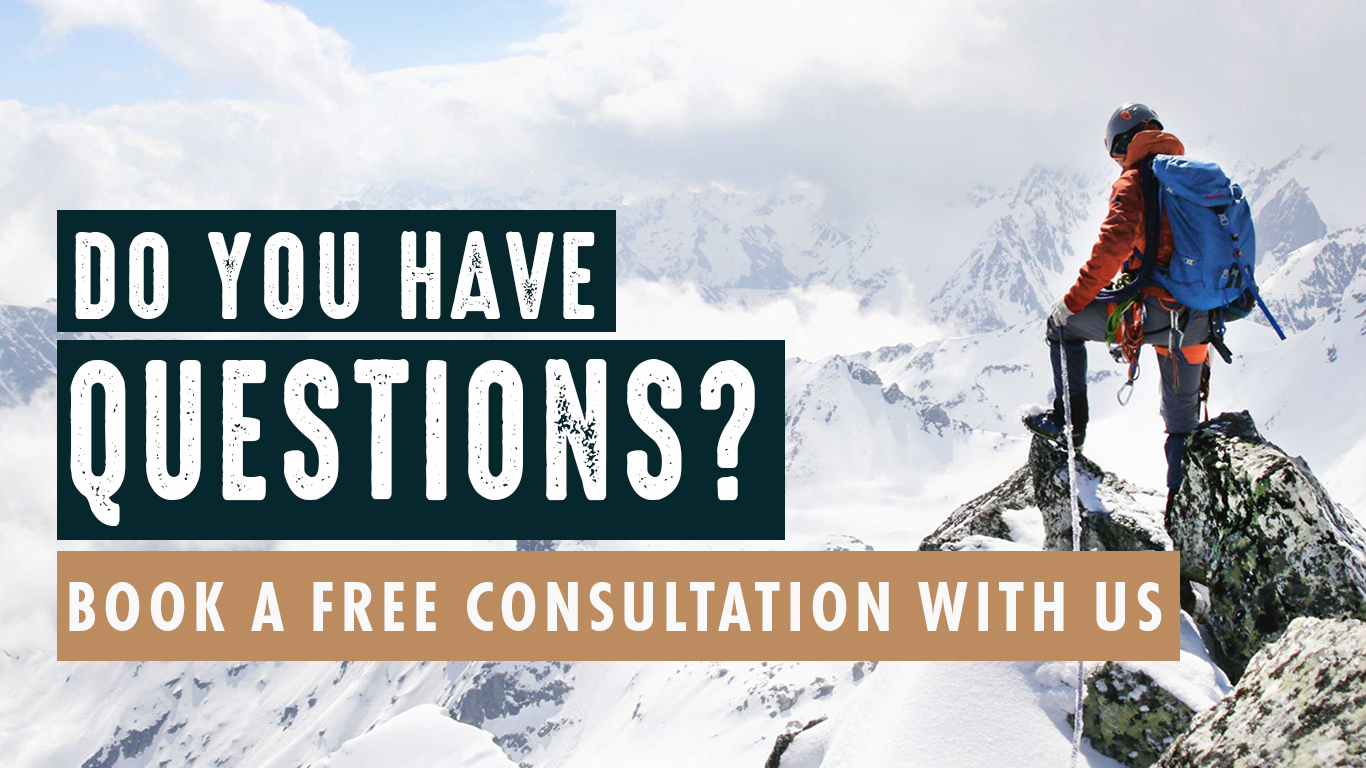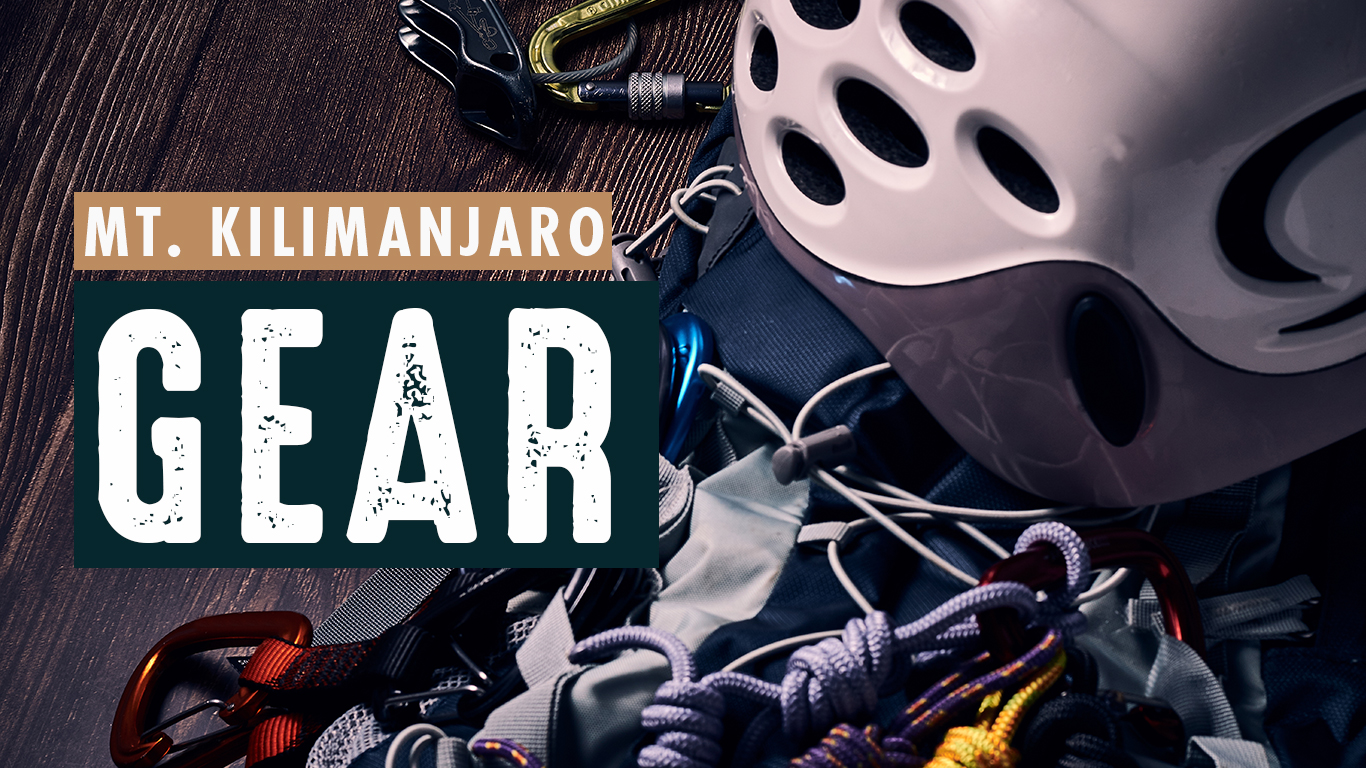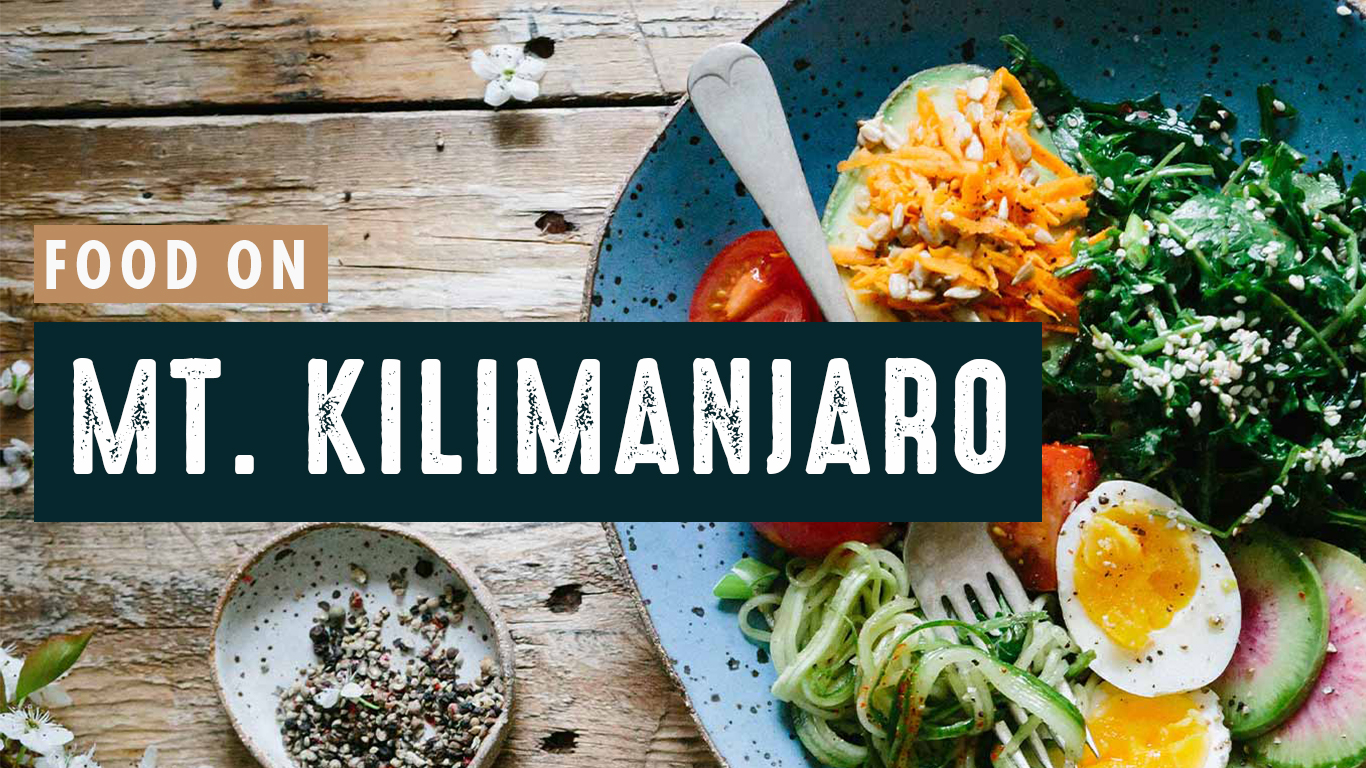Growing up in Pittsburgh, Pennsylvania, Alexandra Rust’s life journey has been marked by a deep-seated love of people and the mountains, which have taught her invaluable life lessons about patience, grit, and community. It was the mountains in fact that led her to relocate to Denver, Colorado where she now calls home. With a career in accounting, Alexandra is ambitious and driven. Her many pursuits in the outdoors, including hiking, backpacking, running, and being a proud ultra-marathoner, are a testament to her unwavering spirit and determination. Her love of life is palpable and her positive energy is contagious.
Amidst a bustling life as a daughter, wife, and a hopeful mother-to-be, an idea began to take root. The seed was planted during a pivotal moment in her life when she was married in the Fall of 2019. At the time, she and her husband envisioned climbing Mount Kilimanjaro as their honeymoon adventure. However, circumstances thankfully led them elsewhere because as we now know, fate had its way when Covid altered plans worldwide.
Fast-forward to 2022 when the idea to climb Mount Kilimanjaro resurfaced after Alexandra’s Mom saw an ad on Facebook from Embark Exploration, Co. She attended one of their informational sessions about climbing Mount Kilimanjaro and immediately felt an intuitive pull to the adventure. She felt that Embark offered safety, expertise, and trust, exactly what she and her family would need to make the journey to Tanzania. And so, upon sharing the news with Alexandra, an international family trek was planned. After a year of meticulous planning, at the age of 32, Alexandra and her husband along with her Mom and her husband embarked on the journey of a lifetime. Together in September of 2023, the group reached the summit of Africa’s iconic peak – Mount Kilimanjaro.
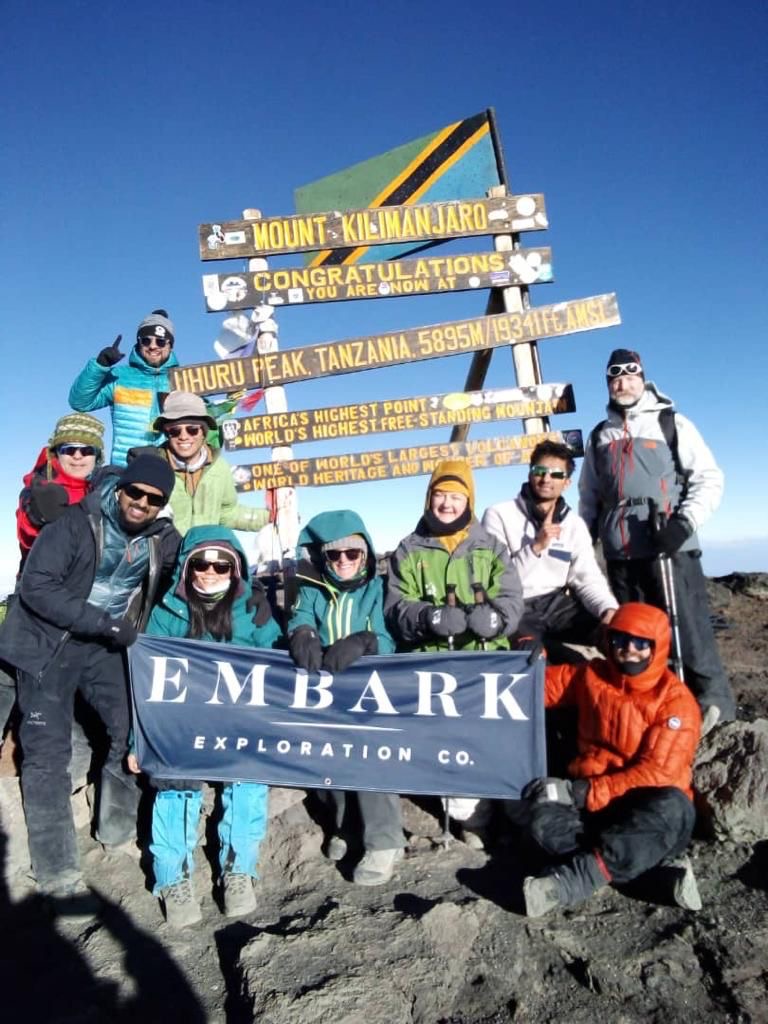
*Alexandra Rust and team on the summit of Mount Kilimanjaro
How did you get into trekking?
I have always had a sense of wanderlust. I’m always curious to know what’s out there where nobody has set foot. After you’ve hiked two or three miles from the trailhead, there is a pretty small number of people who continue on and so going where few have been is exciting to me. I wonder what I will find, what animals I might see, what the scenery could be like. I love being one of the few people that is blessed to get to see all that nature and what is out there.
Prior to Covid, I had a love for long distance running. After Covid, I was feeling very cooped up and a bit withdrawn from my everyday connections and things that brought me joy. My husband pushed me to find something healthy and constructive that I could do. I had taken a break from long distance running during Covid, and so it was then that I decided to return and I found ultra marathons. I worked on longer distances and my built up my endurance and soon enough, I was doing things I never thought I was capable of. There was this positive reward system. I would go out on the weekend and complete an ultra and then get this sense that after accomplishing that, anything that the week ahead might throw at me I would be able to handle. I felt this calling from my soul, this pull toward ultras versus being pushed into them. They really give me a sense of joy and accomplishment.
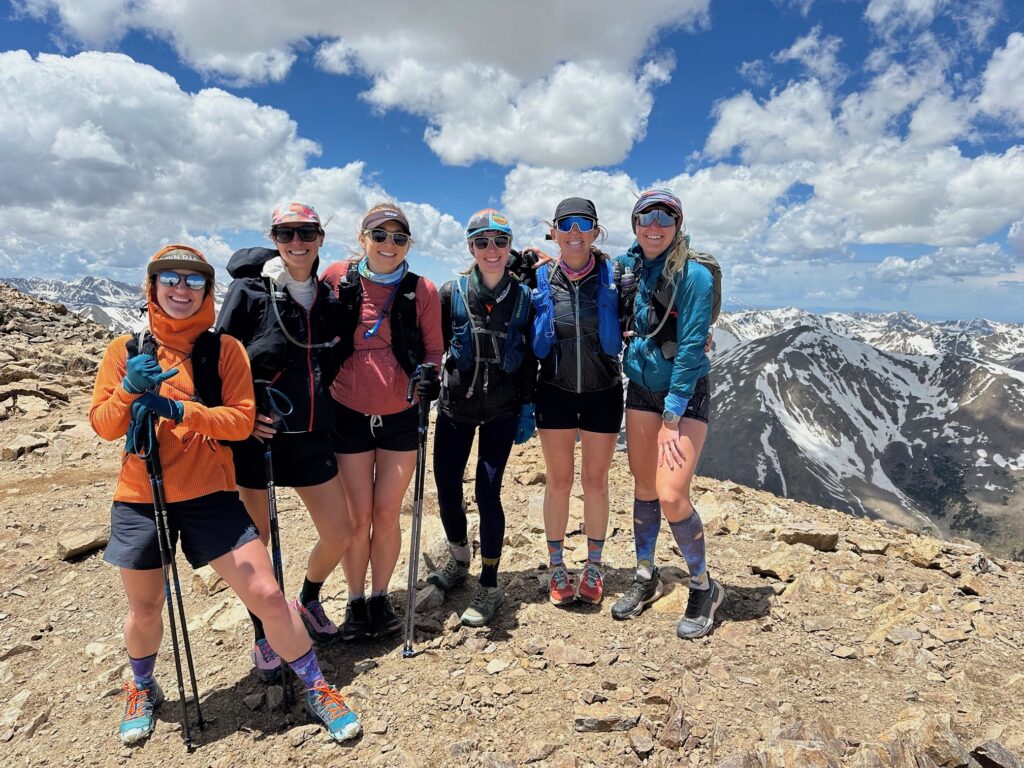
*Alexandra Rust training for her upcoming 100K ultramarathon with the “Sacred Saturday Run” group
What do you love about the outdoors and trekking?
Feeling small.
Going into the mountains and seeing big views and these forces of nature that have been in play for millions of years really puts things into perspective for me. I am reminded how small we all are, how long the Earth has been here, and I feel grounded. I see the outdoors as this framework that facilitates inspiration and motivation to get yourself to places you never thought you could be. Pushing through unrelenting terrain and unexpected obstacles, continuing on despite physical discomfort in some cases, and overcoming natural forces that you have no control over to get to the top of a mountain really helps to increase your mental resilience. Pushing yourself beyond what you thought your limits were and reaching new heights is fantastic!
What did you do to prepare physically and mentally for Mount Kilimanjaro?
There was about one year of planning for us before heading to Tanzania for the climb. In that time, our group had several touch points with Embark Exploration, Co. and we were able to not only take in a lot of helpful information, but also ask all of our questions. We asked about daily itineraries, gear (including gear rentals in Tanzania which proved to be useful for me!), timeframes, what we could expect for food, cultural practices, travel logistics, tipping, safety, and more. We asked so many questions! Getting answers to all of those questions though helped me to feel super comfortable and in a way, to mentally prepare too. I felt excited the whole way through. I wasn’t really nervous or afraid until summit night hit but that was more due to being affected by the altitude. I felt really confident that our guides would help us on the ground when we arrived in Tanzania with whatever we might need.
Physically, I was already in a pretty regimented routine with my running but I knew I needed to add in more to my workouts to prepare for this trek. I added in more strength training and I hiked with my weighted pack for a solid three months prior to the trek. My husband was working out three to four times a week already so he too added in hikes with his weight pack. My Mom and her husband followed a training program provided by Embark. We all made it to the summit in the end.
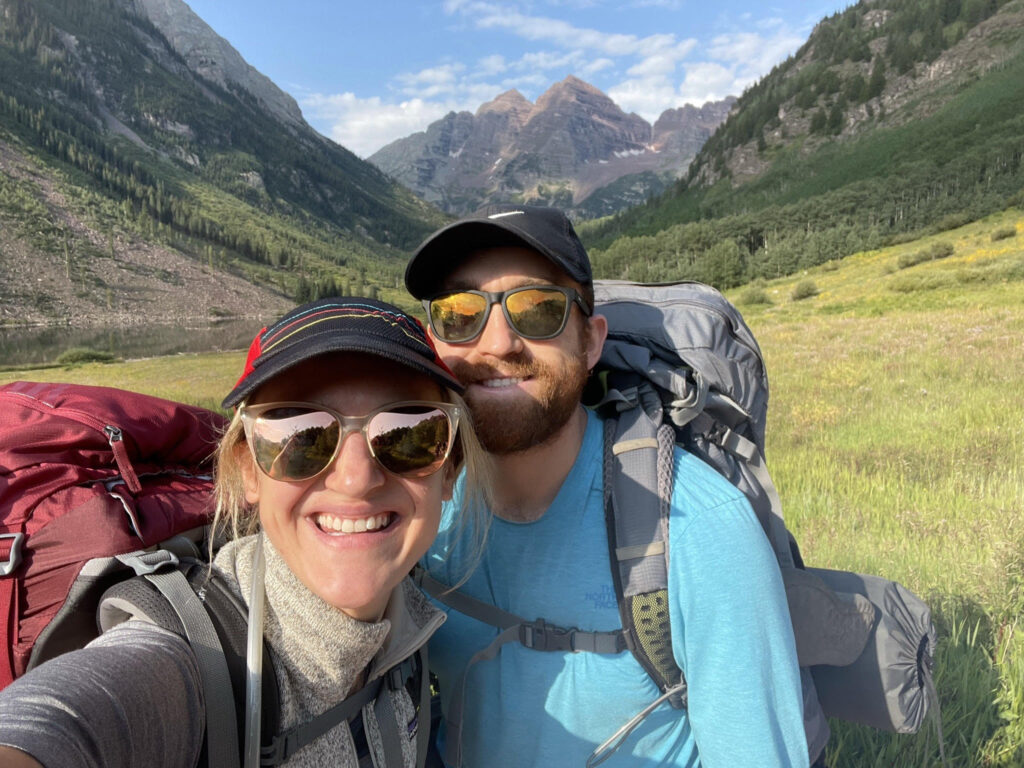
*Alex and Joe Rust on the Four Pass Loop in Colorado with Maroon Bells in the backround
Having summited Mount Kilimanjaro, in your opinion, do you think it is equal parts mental and physical strength or do you think one is more important than the other?
Based on my experience, the physical side of things was relatively easy for me up until summit day and night. I was running ultras at the time of this trip and so I think I had built my ego up a bit thinking I would be fine and not have any issues. So I was actually surprised and humbled because I did get hit with some symptoms of acute mountain sickness leading into the summit day and on summit night. I had experienced some symptoms on prior hikes back home, but this time around they were by far worse than what I had experienced before and so for me, it was that mental strength that was so important. That was in large part what got me through the summit portion of the climb. My stomach felt gross. My head felt gross. I just kept reminding myself how hard I had worked to get there. I remember thinking “You can do this. You only have about six hours left to go.” I would ask myself questions like “Can you go for five or ten more minutes?” and then I would. I would reach that ten-minute mark or so and ask myself the same question again – “Can you go five or ten more minutes?” – and then continue on. I did that over and over. On the descent, it was about steps. I would say to myself “Hey, you can do another ten steps down right?” and then I would make it those ten steps and ask myself again. I really leaned into my mental toughness.
I was also lucky enough to be part of a group that was very encouraging. We all had different personalities and we all supported and encouraged one other. It felt like if at any given moment I was lacking my own mental strength, I could source that from the people around me. We kept one another going.
Were there any challenges that you faced leading up to your climb or during your Kilimanjaro trek?
Well, I mentioned that the altitude affected my stomach making me queasy and also making my head feel gross so that was certainly a challenge. The other challenge though that I’m not sure any of us expected was summit day. We all made it through, but we didn’t expect how long or how challenging that day would be.
We were awake at base camp around 11:30 PM. We came together and had a snack before we headed out for the summit around midnight. We reached Stella Point just as the sun rose, so six hours or so later at least, and then we pushed on to the summit. After a brief stay on the summit, you have to begin to descend back down. Nobody’s really thinking about that part. You’re just thinking about getting to the top, but you’ve got to get back down. While this part of the climb was challenging, there was something so rewarding about descending in the light after having summited in the dark. We were able to see how far we had come and what we had just achieved. We headed back down to base camp where we had a short nap, lunch, and then we were back on our feet descending even further that same day. Over a 24-hour period, it was a lot on our bodies. I was surprised how sore my knees were. Our bodies all felt worked that’s for sure. The ibuprofen was necessary! We worked together though and kept reminding one another that we could do it and we did it!
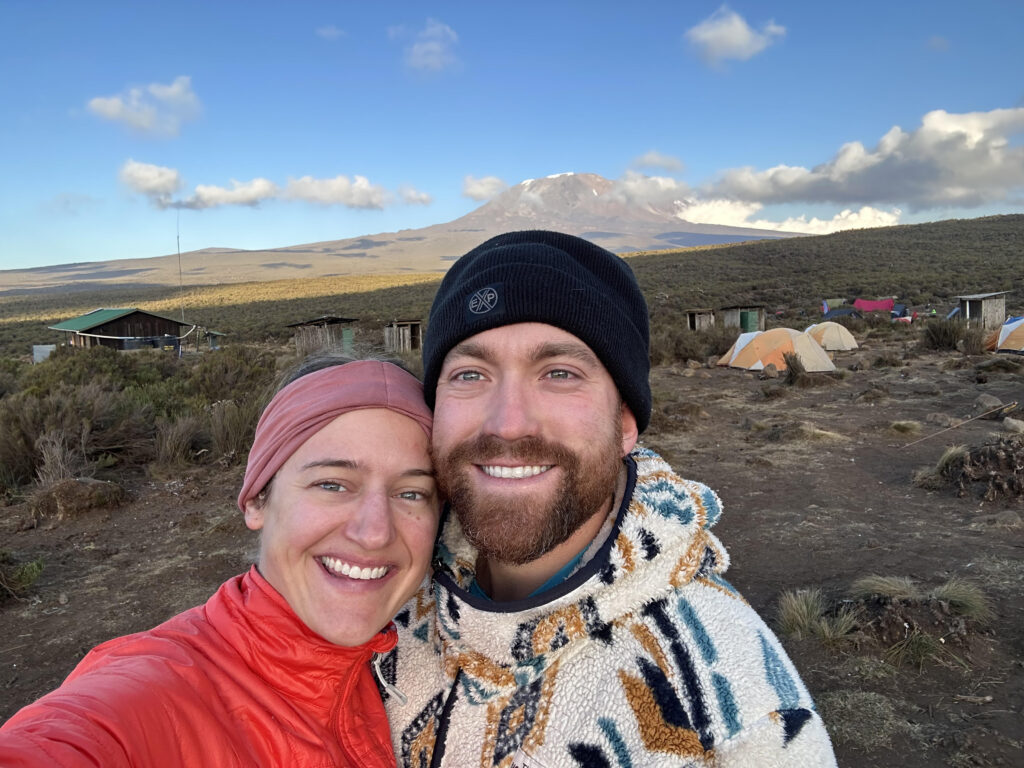
*Alex and Joe Rust on the trails of Kilimanjaro
If you had to describe your summit experience in one word, what word would you use?
Inspiration.
I really struggled climbing from Stella Point to Uhuru Peak, the summit of Mount Kilimanjaro. When I made it through that and reached the top, it was another experience to log in my mind. Going into the climb, I THOUGHT that I could do it, but after reaching the summit, I KNEW I could. I had proven to myself that I could. That felt really good.
What was a life lesson you learned from this experience?
Despite how inundated we can get with negativity in the news, I think that most of us want to have a loving community around us and that most people can connect on some level. As I mentioned earlier, with core values as our foundation, our group formed a lifelong bond on this trek and we all formed a life long connection with our guides and crew. What started as three different groups of people coming together to summit Mount Kilimanjaro ended as ten people that became best friends.
This trip reminded me to always give people the benefit of the doubt. When we have the opportunity to connect with new people in new situations, it’s important not to let fear or doubt get in the way of that and cloud your judgement or impede your ability to potentially form connections with them. It is rare in this life that two people can’t find something they have in common to connect on. The more connected you are to the community around you, to the people around you, the more trust that is built and the more open you are to pushing your limits. You feel safer and more comfortable. The people around you help to push you and make you better and you get the gift of doing that for them.
Was there anything you brought with you that you didn’t need?
I was concerned about food because I knew how important it would be to get in calories for fuel and the right nutrition, especially at higher altitudes. I brought quite a few snacks with me and my breakfast meal shakes but I used none of them. I could have left all of that at home. I really, really enjoyed it. We were having five star meals and some of the best soup I’ve ever had on the mountain. The food was amazing!
Was there anything you didn’t bring with you that you wish you had?
Nothing I wished I had, but I didn’t bring a lot of the required gear. I brought my own backpack, warmer clothing, and boots, but almost everything else I rented when I arrived in Tanzania. Embark offered gear rental after arrival and it seemed easier to me to do that than to travel with all of the required gear. I rented poles, a headlamp, sleeping bag and liner, gloves, and other items too. It was all in excellent condition and rated for the conditions we would experience. It worked out really well!
Aside from trekking Kilimanjaro and that experience, what would you share with others about the Tanzanian people and their culture?
When I travel, I am reminded that we are all so much more alike than we give each other credit for. While our day-to-day lives in America may look very different than people living in Tanzania, our values are the same. Family, love, and purpose are all very important to the people there just like they are for many of us. The guides that we had and the team that was there to support us, they were so easy to talk to and interact with and laugh with. It was so fun getting to know them, learn what their lives are like, and understand what their dreams are. We learned some of the Swahili language as well as songs and games that they like to play. I never felt unsafe. Human to human, those underlying core values were the same and I believe with that as your foundation, you can connect with anyone.
I also decided to stay after the trek and experience a three-day safari. The feelings I got on that safari are feelings I don’t think I had gotten since I was a kid! The animals you have ever only seen on national geographic are within reach. You see them in their real environment, an environment that is so rich with life. It was so much fun! I remember actually squealing with tears and excitement because we were within ten feet of a male lion chasing a female lion!
Our guide was incredible! He knew every detail about each animal and all the different species and what makes them unique. He even had his encyclopedia about all of the wildlife with him to refer to if needed. He was so passionate about his wor and exuded so much joy and love. It was clear that he had found what makes him happy in life and so we could not help but get pulled into that happiness and excitement too.
What is one thing you would you say to someone considering climbing Mount Kilimanjaro?
It’s good to put yourself in positions that require you to push your boundaries because that is when you are able to realize what you are really capable of. If you’re considering this climb but feeling nervous, remember that this is a very accessible trek with excellent support the entire way. Our group consisted of ten people, ages 25-65 years old. While hiking we saw many people well into their 70’s and 80’s making the climb.
The other thing I would add would be to take the training program seriously. Don’t cut corners. Set yourself up for success by building yourself up in advance physically and mentally. Honor the time you will take away from work and your family and friends and the money you’re spending on the trip too by preparing for what you can.
To learn more about Alexandra and follow her adventures, check her out on Instagram at @alexandramarierust

